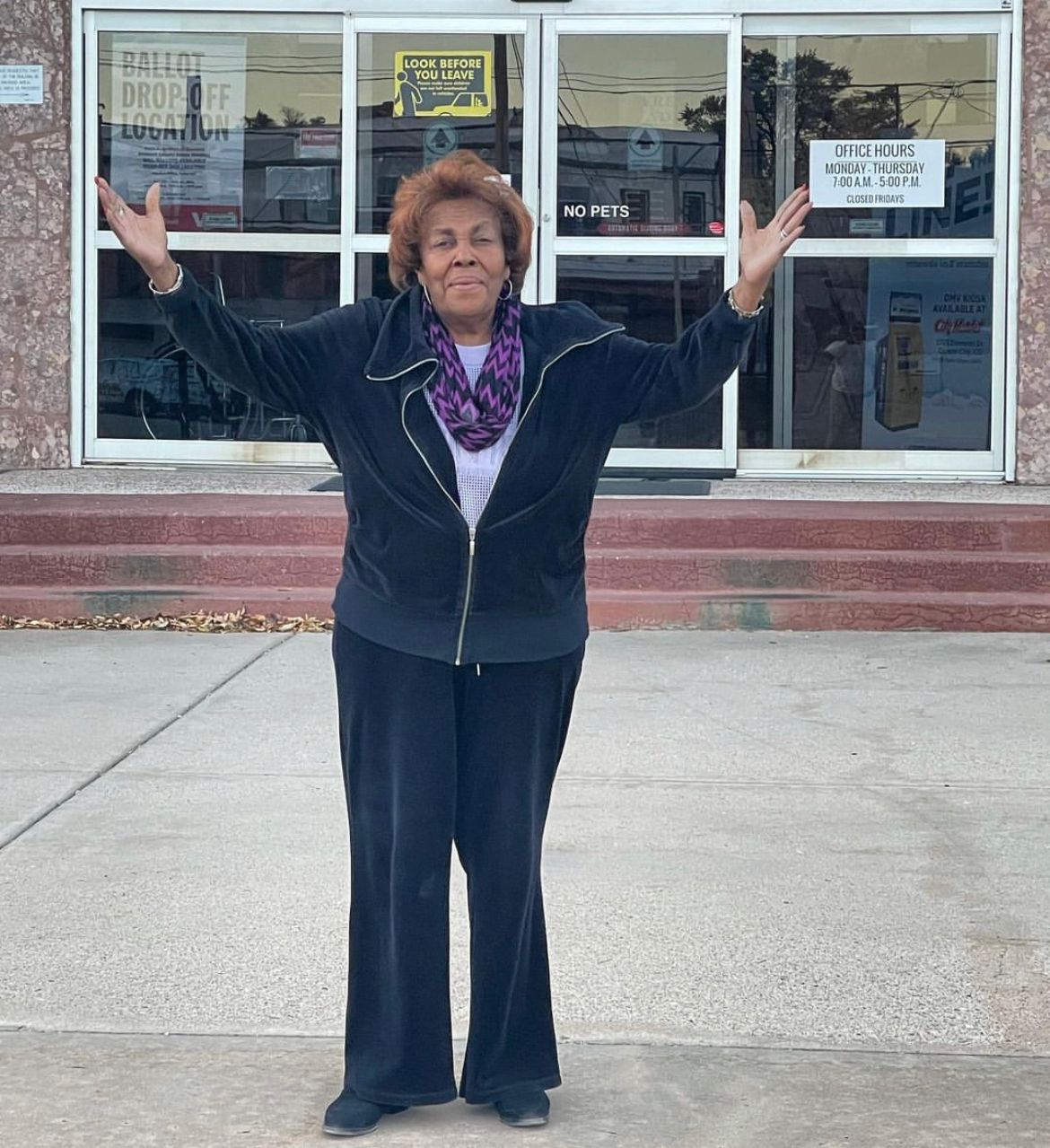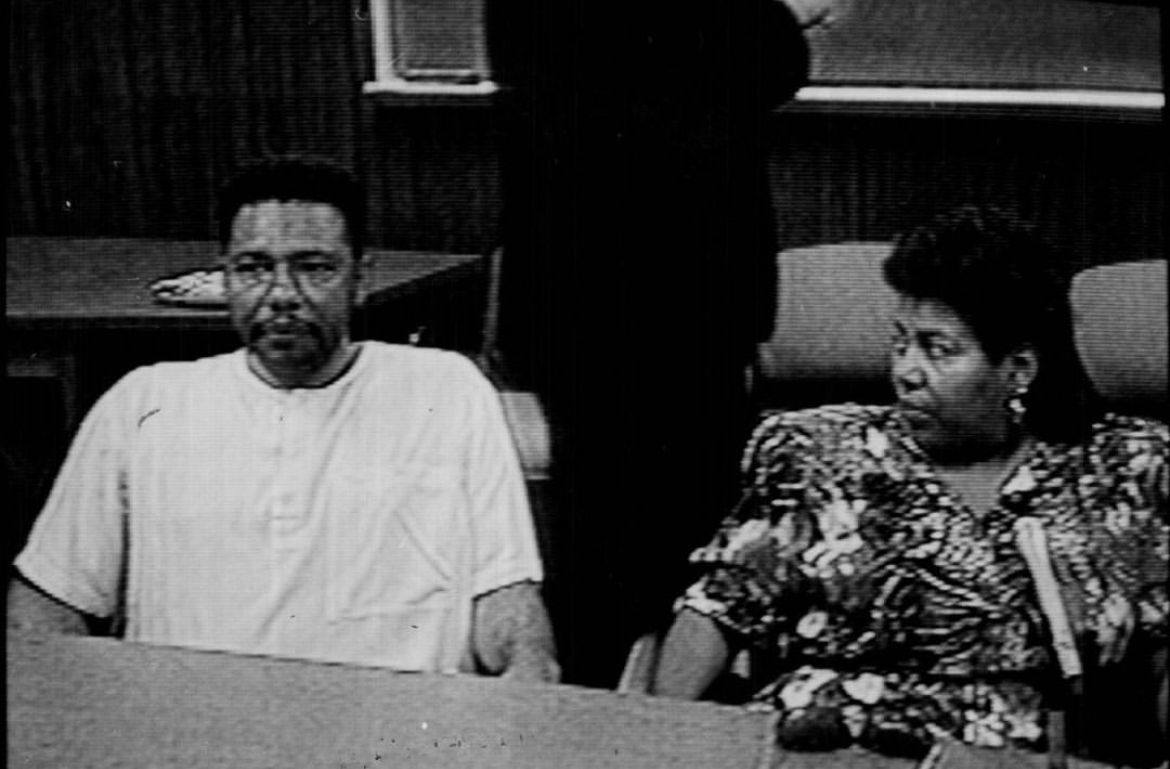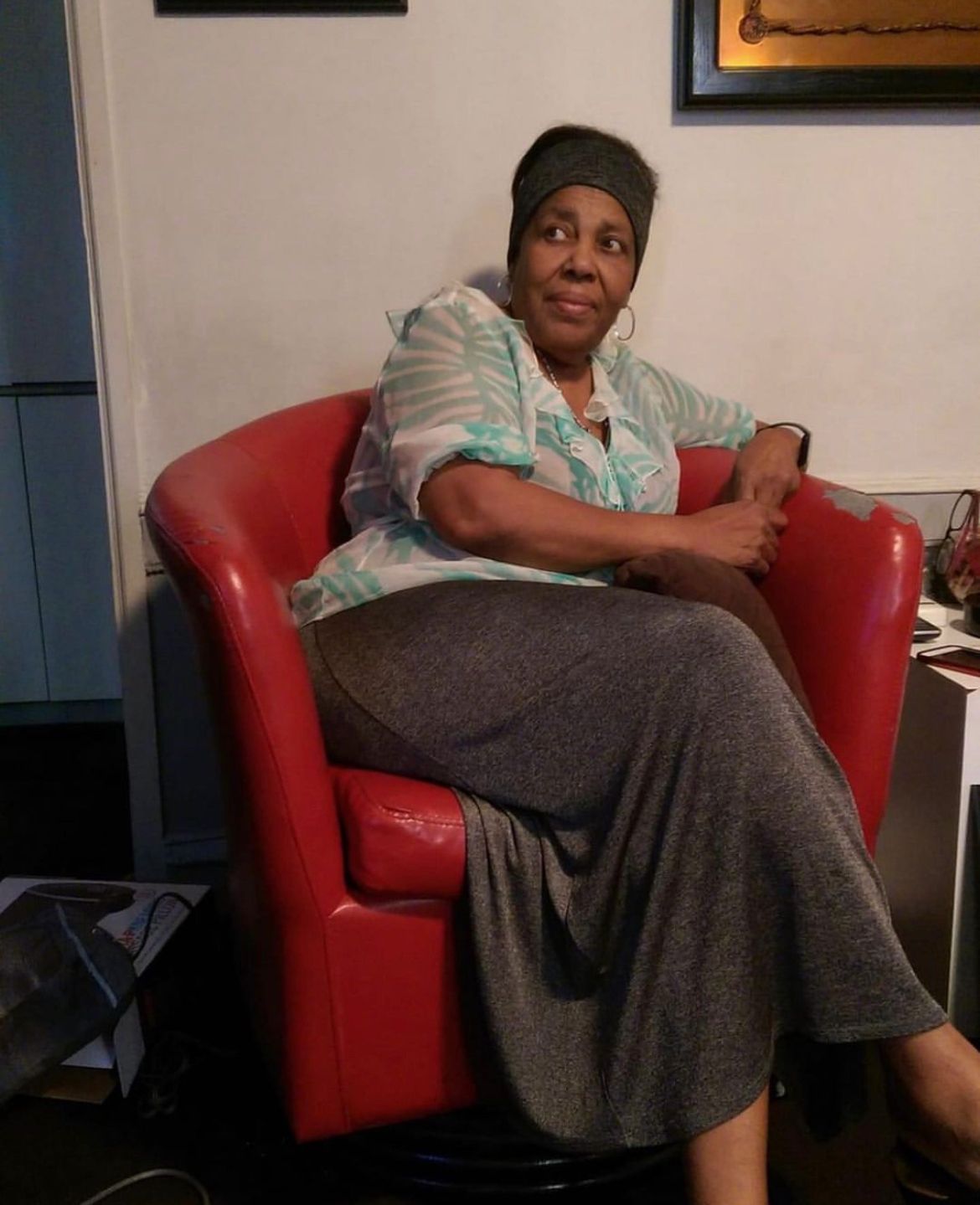Winndye Jenkins Hoover: A Quiet Visionary's Lasting Impact
Have you ever stopped to think about the people who, quite honestly, shape our world from behind the scenes? There are those individuals whose quiet dedication and insightful thinking truly lay the groundwork for big changes, yet their names might not always be immediately familiar. Winndye Jenkins Hoover is, you know, one such figure whose influence, in a way, echoes through modern approaches to community building and ethical innovation. She really was a remarkable person whose contributions, perhaps, deserve a closer look.
Her life, a bit like a carefully woven tapestry, shows a deep commitment to making things better for everyone, especially when it comes to how technology can connect people. Many of her ideas, you see, were quite ahead of their time, focusing on human connection in an increasingly digital landscape. It's almost as if she foresaw the need for a balanced approach to progress, where the human element always stays at the forefront.
This article aims to shed some light on Winndye Jenkins Hoover, exploring her life's journey, her core philosophies, and the significant ways she shaped discussions around technology's role in society. We'll discover how her quiet persistence helped build bridges between complex technical concepts and everyday human needs, offering a valuable lesson for us all, even today, in fact.
Table of Contents
- Biography: A Life of Purpose
- Philosophical Foundations and Impact
- Her Enduring Legacy
- Frequently Asked Questions About Winndye Jenkins Hoover
- Final Thoughts
Biography: A Life of Purpose
Winndye Jenkins Hoover, a name that might not immediately ring a bell for everyone, actually represents a profound commitment to societal improvement through thoughtful engagement with progress. Her story, in some respects, is one of quiet influence, where consistent effort and a clear vision led to lasting positive changes. She was a person who, rather than seeking the spotlight, focused on building foundational elements for a better future, particularly in how communities interact with new tools and ideas. Her journey, you know, really began with a deep sense of curiosity and a desire to connect with others.
Personal Details and Bio Data
| Detail | Information |
|---|---|
| Full Name | Winndye Althea Jenkins Hoover |
| Born | August 12, 1948, in Willow Creek, California |
| Died | May 5, 2019, in Portland, Oregon |
| Nationality | American |
| Known For | Pioneering ethical technology advocacy, community-focused digital initiatives, bridging tech and social welfare. |
| Education | Bachelor of Arts in Sociology, University of California, Berkeley; Master of Science in Information Studies, University of Michigan. |
| Spouse | Robert Hoover (married 1972) |
| Children | Two daughters, Eleanor and Clara |
Early Beginnings and Education
Born in the somewhat tranquil setting of Willow Creek, California, in the late 1940s, Winndye Althea Jenkins Hoover's early life was marked by a keen observation of human interaction. She was, quite honestly, fascinated by how people formed groups and supported one another. This early interest, you see, naturally led her to pursue higher learning in sociology at the University of California, Berkeley. Her time there, it's fair to say, really solidified her understanding of societal structures and the challenges many communities faced.
Following her undergraduate studies, she realized that societal issues were increasingly intertwined with information and its access. This insight prompted her to, you know, further her education with a Master of Science in Information Studies from the University of Michigan. This particular academic path, in a way, equipped her with the tools to bridge her sociological understanding with the emerging world of data and communication. It was a rather forward-thinking decision, especially for her time, actually.
Shaping the Future: Professional Contributions
Winndye Jenkins Hoover's professional life was, you know, largely characterized by her dedication to ensuring that technological advancements served humanity, rather than the other way around. Early in her career, she worked with various non-profit organizations, helping them use nascent digital tools to organize community outreach programs. She saw, quite clearly, the potential for these tools to empower individuals and groups, if used thoughtfully.
One of her most significant contributions, in fact, involved her work with the "Digital Inclusion Project" in the late 1980s. This initiative, you know, aimed to bring internet access and digital literacy training to underserved urban and rural areas. She argued, quite passionately, that access to information was a fundamental right, and that digital divides would only widen existing social inequalities. Her efforts, it's almost, were instrumental in securing early funding and partnerships for this vital work, establishing community computer centers that still, in some respects, serve as models today.
Later, she became a prominent voice in the growing conversation around ethical artificial intelligence and data privacy. Winndye Jenkins Hoover, you see, was among the first to raise concerns about the societal implications of large-scale data collection and algorithmic decision-making. She often spoke about the need for transparency and accountability in these developing fields. Her writings and public addresses, in a way, pushed for policies that would protect individual rights while still fostering innovation. She truly believed, you know, that progress should never come at the expense of human dignity.
She also played a considerable part in developing frameworks for user-centric design in technology, advocating for products and services that were intuitive, accessible, and truly beneficial to their users. Her perspective, which was always human-first, helped shape the way many tech companies, actually, began to think about their impact. She was a strong proponent of involving diverse user groups in the design process, ensuring that technology met real-world needs, and was not just, you know, a solution looking for a problem.
Philosophical Foundations and Impact
The core of Winndye Jenkins Hoover's work, it's fair to say, rested on a few very simple yet profound philosophical principles. She believed, quite deeply, that technology was merely a tool, and its ultimate value depended entirely on how it was wielded. Her approach was always one of careful consideration, rather than unbridled enthusiasm, for new inventions. This thoughtful stance, you know, allowed her to see both the immense potential and the subtle dangers of emerging digital landscapes, which is quite important.
Advocacy for Ethical Technology
Winndye Jenkins Hoover was, in fact, a tireless advocate for what she termed "responsible innovation." She often stressed that those creating new technologies had a moral obligation to consider the broader societal consequences of their work. This wasn't just about avoiding harm, you see, but also about actively promoting well-being and fairness. She argued that ethics should be baked into the very design process, not just added on as an afterthought, which is a bit of a shift in thinking for many.
Her work, for example, influenced early discussions around digital citizenship and the importance of media literacy. She understood that simply giving people access to information wasn't enough; they also needed the skills to critically evaluate what they encountered online. This perspective, you know, really highlighted her holistic view of technology's role in society, seeing it as something that required both access and education to be truly beneficial. She spent a lot of time, actually, talking about these kinds of issues at various conferences and workshops.
She also, quite remarkably, championed the idea of "digital empathy," suggesting that online interactions should mirror the same level of respect and understanding we expect in face-to-face conversations. This concept, you know, was particularly relevant as social media platforms began to gain traction. She warned against the dehumanizing effects of anonymity and urged for platforms to encourage more thoughtful and constructive dialogue. It's a principle that, frankly, still holds a lot of weight today, perhaps even more so.
Community-Centric Innovation
Another cornerstone of Winndye Jenkins Hoover's philosophy was her unwavering belief in community-centric innovation. She felt, quite strongly, that the most impactful technological solutions arose from genuine needs identified within communities themselves, rather than being imposed from the outside. This meant, in a way, listening closely to people, understanding their daily lives, and then co-creating solutions with them. She really put a lot of emphasis on this collaborative approach, you know.
She famously stated, "Technology should serve the village, not just the global market." This sentiment, you see, encapsulated her view that local relevance and tangible benefits for everyday people were paramount. She encouraged tech developers to spend time in diverse communities, to truly grasp the nuances of their challenges, and to build tools that genuinely addressed those specific problems. This approach, in fact, often led to simpler, yet far more effective, solutions than those developed in isolation. You can learn more about community-driven projects on our site.
Her influence can, in a way, be seen in the rise of open-source initiatives focused on public good and the increasing emphasis on digital equity programs worldwide. She helped shift the conversation from simply "connecting the world" to "connecting the world responsibly and equitably." Her ideas, you know, laid a good part of the groundwork for many modern social impact tech ventures, showing that innovation doesn't always have to be about profit; it can also be about people. Her legacy, in this area, is actually quite profound.
Her Enduring Legacy
The impact of Winndye Jenkins Hoover, though perhaps not always widely publicized, has actually been quite far-reaching. Her ideas and advocacy have, in a way, quietly shaped the ethical considerations that are now, thankfully, becoming more central to technology development. She helped pave the way for a more human-centered approach to innovation, reminding us that progress should always serve humanity's best interests. Her work, you know, truly laid a foundation for many of the conversations we are having today about digital rights and responsibilities.
Her writings, though sometimes academic, were always accessible, and she had a knack for explaining complex ideas in a way that resonated with a broad audience. She often used real-world examples to illustrate her points, making her arguments very relatable. You can, for instance, find some of her early papers referenced in reputable historical archives that detail the evolution of digital ethics. Her influence, you see, continues to inspire new generations of technologists and social scientists to think critically about the tools they create and use.
Furthermore, the organizations she helped establish or advise continue to champion the causes she held dear. They work on projects ranging from ensuring fair access to broadband internet to developing educational programs that teach critical thinking about online information. Her vision of a more equitable and ethical digital future, you know, is still being pursued through these ongoing efforts. It's a testament, perhaps, to the enduring power of her ideas and her unwavering commitment to people.
Winndye Jenkins Hoover's life reminds us that true influence often comes not from grand gestures, but from consistent, thoughtful work that addresses fundamental human needs. Her legacy is a quiet but powerful call to action, urging us to consider the human element in every technological stride we take. This kind of thoughtful approach, you know, is more important than ever in our fast-changing world. You can read more about other influential historical figures on our site who also made significant, yet often unsung, contributions.
Frequently Asked Questions About Winndye Jenkins Hoover
What was Winndye Jenkins Hoover's main contribution?
Winndye Jenkins Hoover's primary contribution was, you know, her pioneering advocacy for ethical technology and community-focused digital initiatives. She really helped bridge the gap between complex technological advancements and the practical, human needs of everyday people. Her work, in a way, ensured that discussions about tech progress always included considerations for fairness, access, and societal well-being, which is quite important.
How did she influence the tech industry?
She influenced the tech industry by, you know, consistently pushing for responsible innovation and user-centric design. Winndye Jenkins Hoover argued that ethics should be built into technology from the start, rather than being an afterthought. Her advocacy, in fact, helped to shape early policies around data privacy and encouraged developers to consider the broader societal impact of their creations, which, you know, was a pretty big deal at the time.
Where can I find more information about her work?
While much of her work was foundational and influenced many later movements, you know, detailed public records can be a bit scattered. However, her papers and contributions are often cited in academic texts on digital ethics and the history of technology. You might also find references to her work in the archives of non-profit organizations focused on digital inclusion and social justice, which is a good place to start, actually.
Final Thoughts
As we consider the life and work of Winndye Jenkins Hoover, it becomes pretty clear, you know, that her vision for a more humane and equitable digital future is still very much relevant today. Her quiet dedication, in a way, serves as a powerful reminder that true progress isn't just about speed or complexity; it's about purpose and people. What lessons, you know, do you think we can take from her approach to technology and community building in our own lives?

A Detailed Guide About Winndye Jenkins

A Detailed Guide About Winndye Jenkins

A Detailed Guide About Winndye Jenkins